Common wisdom paints William Allen, a wealthy and prominent Pennsylvanian, as a traitor to the cause of American independence. As the revolution grew, the politically powerful Allen, unwilling to break entirely with Britain, retired from public life, while three of his sons—attainted of treason and forced into exile—had much of their property confiscated. Despite their earlier efforts on behalf of American liberty, the Allens became objects of scorn, their contributions to their young nation forgotten. But things are seldom as simple as they appear on the surface. What might we learn from a closer examination of the Allens’ plight?
Born in Philadelphia in 1704, William Allen was the son of a Presbyterian Scots Irish immigrant, also named William, and a Quaker, Mary Budd, daughter of a prosperous New Jersey family. A successful merchant, his father sent young William to study law in England in 1720, where the youth resided for several years, and where he came to know John and Thomas Penn, sons of the provincial founder, the proprietors (effectively the owners and heads of government) of Pennsylvania. Returning in 1725 to settle his father’s estate, William inherited a substantial mercantile enterprise which he soon put to good use, expanding his business interests, speculating successfully in vast amounts of land and, as a lawyer, engaging in political support of the Penn family’s interests.
In 1734 he married Margaret Hamilton, daughter of the powerful Philadelphia lawyer Andrew Hamilton, well known to history for his defense of publisher John Peter Zenger in 1735, a landmark case promoting freedom of the press in America. Together, Hamilton and Allen donated funds and purchased the land to build Pennsylvania’s state house, known today as Independence Hall.
At first, the Allen family supported the cause of American freedom warmly. William, through his personal accumulation of wealth and power, and through familial connections, had become part of America’s aristocracy in the years leading up to the revolution. A member of the Pennsylvania Assembly, William led the Proprietary faction during the 1740s and 1750s, which abetted the Penn family and battled Benjamin Franklin’s Quaker party for control of the province. Allen and his sons actively espoused Americans’ economic independence and right to self governance within the framework of the United Kingdom. As an assemblyman and chief justice of Pennsylvania, William strongly advocated American rights, objecting to parliamentary actions deemed contrary to colonial interests. While in England in 1763, for instance, he used his influence to lobby against British plans to pass the Stamp Act. Between 1774 and 1776, the Allen sons participated in many of the extra-legal governmental bodies created to resist British domination over the colonies. When war broke out in 1775, the Allens joined Patriot military organizations and offered to donate shot from their ironworks at “The Union” in Hunterdon County, New Jersey, for use by American artillery in defending Philadelphia from British attack.[1]

William’s daughters both married influential men, and these relationships entangled him deeply in the Anglo-American establishment. Daughter Ann married one of the Proprietors of Pennsylvania, John Penn, grandson of William Penn, who served for years as lieutenant governor of the province. His daughter Margaret married James De Lancey, son of the former chief justice and governor of New York, a political moderate and Stamp Act critic who also initially supported American freedom.
But the ominous rise of a radical populist political party in Pennsylvania, which seemed to aim at wresting power from the former elite, disturbed the Allens deeply. Politically, the Allens gradually found themselves in an untenable position. Through public posts they held and commitments they had made, the family was so inextricably tied to Great Britain that they could not, with honor, support the total break with the mother country occasioned by the Declaration of Independence. What the family saw as increasing radicalization finally caused them to sever their connections with the revolutionary movement in 1776.
William’s eldest son, John Allen, had been an active member of Philadelphia’s Committee of Inspection and Observation. A patriot, he had collected money for those suffering from the blockade of Boston, and involved himself in the affairs of the first colonial military units.[2] While he served briefly in New Jersey’s provincial congress, he left that body in 1776 when it became apparent that it would support independence.
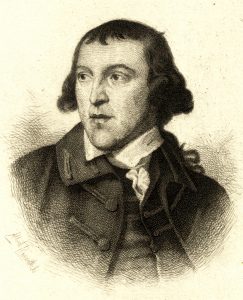
Son Andrew helped organize a light cavalry company, Philadelphia’s renowned First City Troop, serving as its 1st lieutenant. Already a Pennsylvania assemblyman and member of the Committee of Safety, because of his moderate views he was elected a delegate to the Second Continental Congress, where he sought to restrain progressively radical measures against the mother country, eventually earning resentment for his efforts.
Third son James was another member of the Pennsylvania Assembly, a Philadelphia lawyer with a burgeoning practice. Through his father, he had become a large-scale landowner in Northampton County. Like the rest of the family, he advocated resistance to Great Britain, but not revolution. In 1775, he became an Associator, joining the Pennsylvania militia to resist the British by force of arms, but he did so as an Englishman conscious of the need to defend America’s rights within the empire. “We have no hopes but that the struggle will soon be over: if it continues, America is ruined whoever gets the better,” James wrote. “It is a great and glorious cause. The Eyes of Europe are upon us; if we fall, Liberty no longer continues an inhabitant of this Globe: for England is running fast to slavery. The King is as despotic as any prince in Europe; the only difference is the mode.”[3]
The next year, James became a soldier in the regular army, serving in the 3rd Pennsylvania Battalion. He did so as much out of mistrust as patriotism. He wrote,
Last Thursday & the preceding Tuesday I appeared in Battalion in my uniform, as a private man in Captn Shees company. I have no opinion that this association will be very useful in defending the City: as they have refused to be bound by any Articles & have no subordination. My Inducement principally to join them is; that a man is suspected who does not; & I chuse to have a Musket on my shoulders, to be on a par with them; & I believe discreet people mixing with them, may keep them in Order. At this time there seems to be a determined resolution in England & here, to continue the War. . . . With all my zeal for the great cause we are engaged in, I frequently cry out—Dreadful times![4]
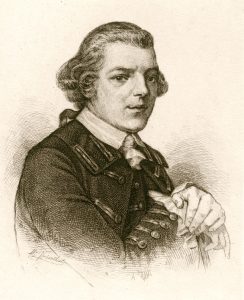
In September 1776, out of curiosity, James decided to travel to the “seat of war” in New York, visiting with various Pennsylvania officers along the way. He knew General Washington and most of his staff socially, and lodged with them on Manhattan island, an honored guest. On September 16, he was present when the Battle of Harlem Heights broke out. Leaving New York the next day for his family’s holdings in northwest Jersey, he was escorted by a reliable cavalry officer whom he knew from Northampton.
The youngest Allen, William, known to his family as Billy, supported the American cause with great resolution, securing a captain’s commission in William Thompson’s rifle battalion, the first unit of the nascent United States Army. Promoted to lieutenant colonel of the 2nd Pennsylvania Battalion the following year, he distinguished himself during the American defeat at the Battle of Trois Rivieres on June 8, earning Anthony Wayne’s praise for his actions in the tiny but valiant rear guard that helped save the retreating American force:
Allen and myself were now left on the field with only twenty men and five Officers, the Enemy still Continuing their whole fire from Great and small guns upon us . . . the Enemy who were Strong in Number had Detatched in two or three bodies about 1500 men to cut off our Retreat . . .I believe it will be Universally Allowed that Col. Allen and myself have saved the Army in Canada.[5]
Just weeks after his heroic defense in Canada, Billy was outraged at the Declaration of Independence, which the family had feared was coming. Despite offers of promotion, he resigned his commission on July 24.
Suspicious that disaffected people in the rebel capital might interfere on behalf of the British, plans were made to suppress those whose lack of commitment concerned the authorities. It was rumored that the whole Allen family was included on a list of 200 people to be exiled. At that, John, Andrew, and William left the province to shelter at their property in Hunterdon County, New Jersey. Shortly after, they fled to Trenton, seeking the protection of the British army, and accepting Gen. William Howe’s amnesty offer.[6] Actively embracing the British war effort, Billy then raised a regiment of provincial troops, the Pennsylvania Loyalists, to fight alongside the regulars, a blatant act from which there could be no redemption.
James, meanwhile, though he offered no resistance, was supposed a potential traitor whose influence might damage the revolution militarily or politically. After retiring to his property in Northampton, he was summoned by a guard of soldiers with fixed bayonets to go to Philadelphia to answer sharp inquiries about his activities. Though he gave assurances of neutrality, he continued to be subjected to harassment by the Northampton militia, who once terrified his wife and daughter by assaulting their carriage, beating the driver, smashing its windows, thrusting bayonets into its interior, and trying to overturn it with the ladies still inside.[7]
In Philadelphia, William Allen, Sr. maintained cordial relations with members of the Continental Congress, entertaining them frequently in his home. But he wound down his direct involvement with government during 1776, instead attempting to use private influence to nudge people toward a peaceful solution. He actively advocated compromise—resolution within a framework of law and governance that would include reconciliation with Britain through adequate American representation in its government. As positions polarized and hardened on both sides of the growing rift, Allen’s wise counsel fell on deaf ears. With the conflict expanding, the elder Allen tried to steer a neutral course, remaining in the city, declining Howe’s amnesty, but also refusing to take Pennsylvania’s oath of allegiance.
Disrupted by revolution, the family’s fortunes declined. John Allen returned to Philadelphia during the British occupation, dying there in February 1778 before his fortieth birthday. His brother James also tried to remain neutral, but suffered for it. Harassed by militiamen who envied his prosperity, viewed with suspicion by the new Pennsylvania government, and ill with consumption, James Allen died in Philadelphia in September 1778. Patriarch William, who had retired in obscurity to his country estate outside the city, Mount Airy, passed away quietly in 1780.
John Penn ignored the British amnesty offer and, after signing the oath of allegiance to Pennsylvania’s new government in 1778, remained in Philadelphia with his wife Ann until his death in 1795. Margaret Allen’s husband, James De Lancey, an active New York patriot who had served on a Committee of Correspondence, found himself increasingly marginalized as a politician. By 1776, he fled to Canada and then England, where the couple spent the rest of their days. With much of their family property confiscated by Pennsylvania, Andrew and Billy also ended their lives in England.
Civic minded, industrious, prosperous yet generous, the Allen family had served America well during the colonial period, and were active proponents of colonial rights in the early days of the revolution. But radical change conflicted with their prosperity, their principles and their loyalties. In the end, because they felt it more important to honor their earlier commitments, William Allen and most of his sons were driven away by the nascent government of Pennsylvania and ever after deemed Tories and traitors.
Further Reading
For extensive biographies of Andrew Allen, James Allen and William Allen, Sr., see “Andrew Allen”, “James Allen”, and “William Allen,” in Lawmaking and Legislators in Pennsylvania, A Bibliographical Dictionary, Volume Three: 1757-1775, ed. Craig W. Horle, et al. (Harrisburg, House of Representatives of the Commonwealth of Pennsylvania: 2005), 199-280.
For brief biographies of John Penn, William Allen, Andrew Allen, James Allen and John Allen, see Whitfield J. Bell and Charles Greifenstein, Jr., Patriot-Improvers: Biographical Sketches of Members of the American Philosophical Society. 3 vols. (Philadelphia: American Philosophical Society, 1997),176-185, 193-199, 237-243, 246-251,258-261.
[1]Keith W. Wright, A History of the Andover Iron Works: “Come Penny Go Pound” (Charleston: The History Press: 2013), 66.
[2]Robert N. Fanelli, “Charles Craig’s Last Statement”, Journal of the American Revolution, July 10, 2018, allthingsliberty.com/2018/07/charles-craigs-final-statement/.
[3]“Diary of James Allen, Esq., of Philadelphia, Counsellor-at-Law, 1770-1778,”The Pennsylvania Magazine of History and Biography IX (1885), 185,www.familysearch.org/library/books/records/item/470545-the-pennsylvania-magazine-of-history-and-biography-v-9-1885?viewer=1&offset=0#page=1&viewer=picture&o=info&n=0&q=.
[5]Anthony Wayne to Benjamin Franklin, June 13, 1776, Historical Society of Pennsylvania, founders.archives.gov/documents/Franklin/01-22-02-0279.





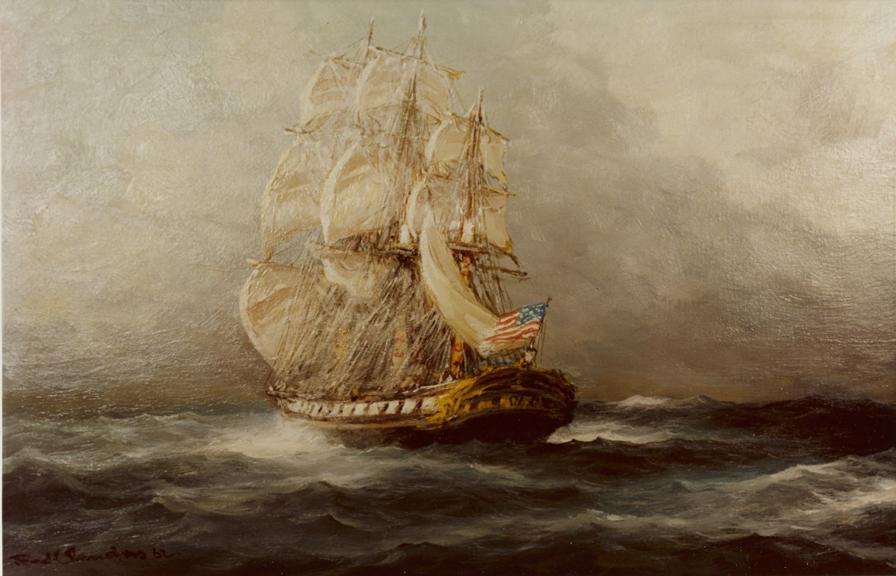
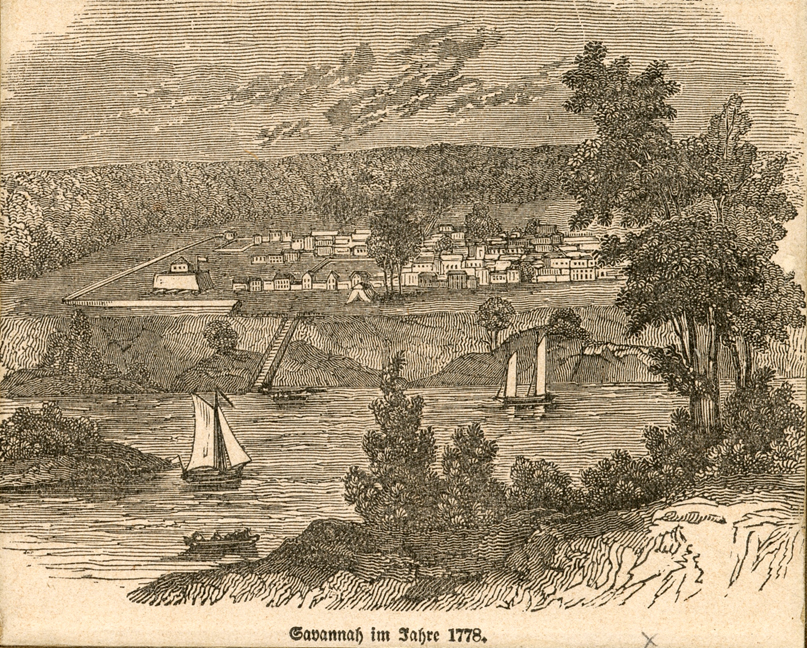
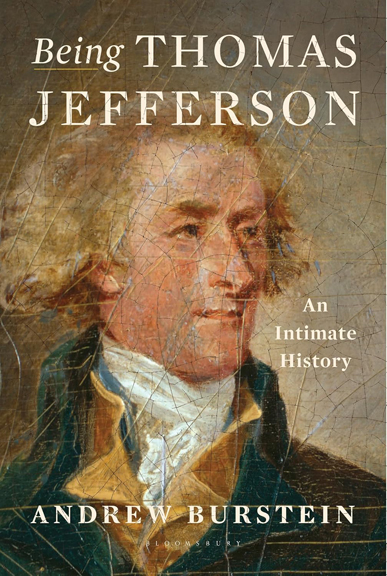

One thought on “William Allen and His Family: Tories or Patriots?”
Thank you for this story. It is a reminder that history is nuanced, and that, for many families, the American Revolution presented difficult choices and impossible tests of “ loyalty.”
I remember a teacher telling me that for many New Yorkers, the American Revolution was a civil war that divided families and friends. I often wonder, if I had lived at that time, which side I would have supported. I think I would have been as torn as the Allens.